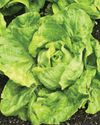
Starting her career as an extension agent in home economics, now family and consumer sciences (FCS), and ending it as a district FCS program leader, Brenda Kucharski of Spring City, Tennessee retired from a 40-year career with the University of Tennessee Extension Service. A skilled basket maker, Kucharski shares some fascinating details of her craft.
HISTORY OF BASKET WEAVING
According to Kucharski, basket use in our history goes as far back as the history of man.
"Archeologists have found clay imprints of tightly woven materials from the Stone Age," she says. "Records show the Egyptians using baskets 7,000 years ago. Exodus 2:3 (NIV) gives the account of Moses being hidden in a basket on the Nile River." Kucharski says that with records of baskets being used by the Assyrians, Greeks, Romans and others, it's only natural that the pioneer Americans relied on baskets for many uses in their daily lives.
In early America, baskets were used for various tasks. These included heavy agricultural baskets used for feeding livestock, gathering eggs and sifting grain. There were also sturdy storage baskets that held laundry and linens and carried butter and eggs to the store for bartering for groceries and household items.
More delicate baskets were used for gathering berries and mushrooms, storing seeds, sewing,knitting and spinning items. "Baskets were often named for their use or content such as grain riddles, winnowing baskets, fish traps, egg, coal, berry, clothes, cradle and laundry baskets," Kucharski says.
This story is from the {{IssueName}} edition of {{MagazineName}}.
Start your 7-day Magzter GOLD free trial to access thousands of curated premium stories, and 9,000+ magazines and newspapers.
Already a subscriber ? Sign In
This story is from the {{IssueName}} edition of {{MagazineName}}.
Start your 7-day Magzter GOLD free trial to access thousands of curated premium stories, and 9,000+ magazines and newspapers.
Already a subscriber? Sign In

The RISE of Opportunist WEEDS
Be prepared to see increasing changes in weeds we fight, such as poison hemlock and poison ivy, and in the crops we grow.

LIVESTOCK Health
Prepare yourself for how to spot symptoms of illness in your farm animals so that you can get them help before it's too late.

CUT FLOWER Farming
If you're considering growing flowers for sale, brush up on these five key things to know before diving in.

WINTER Survival
Keep your land, animals and yourself in good shape this winter with this helpful advice.

COVERAGE CONCERNS
Avoid common insurance mistakes for rural and hobby farm businesses.

FARMER'S GUIDE Berries
Set the stage for tasty strawberries, blueberries and brambles with these soil-boosting garden tips.

Preconditioning CALVES
Follow our step-by-step guide to get more money for your calves.

Soil Conservation
Often, outside of having a specific problem that needs to be addressed, soil conservation isn't something every farmer readily thinks about. Yet conserving the soil should be at or near the top of every farmer owner or manager's list of concerns because absent the prevention of soil erosion, we have the opportunity for another dust bowl.

Year-Round Lettuce & Salad Mixes
It's easy to think of salad greens as just a spring- or fall-garden crop, but it's possible to enjoy freshly harvested lettuces, mustards and more from your own garden year-round.

Barn Improvements
Days are never long enough for a farmer. From dawn to well into the night, tasks arise that often require immediate action. Having to search for tools or equipment is an enormous time waster and incredibly frustrating when you can't find what you need, especially when you know you have it.